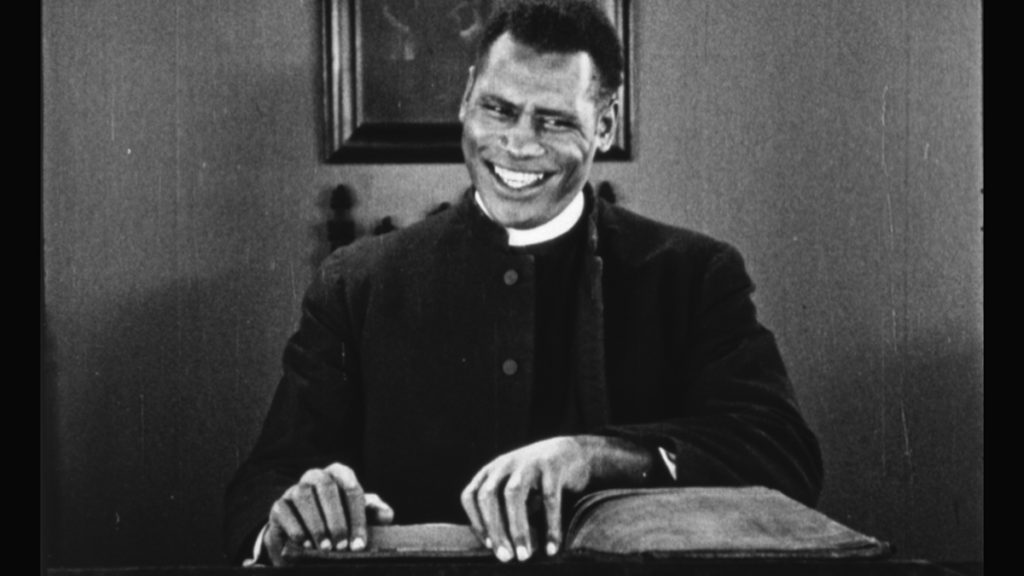Tuesday, September 12 at 7:00 PM — Music Box Theatre — 3733 N. Southport Ave
Tickets: $12 at the door, or purchase in advance

BODY AND SOUL
Directed by Oscar Micheaux • 1925
In 1924 Paul Robeson electrified Broadway with his performance in Eugene O’Neill’s All God’s Chillun Got Wings, which soon led to the starring role in a revival of O’Neill’s The Emperor Jones. Hollywood scarcely noticed Robeson, leaving self-made race film impresario Oscar Micheaux to swoop him up for $100 a week for what would become Robeson’s film debut, Body and Soul. Robeson stars in a dual role, playing both Isiaah T. Jenkins, a hardened criminal posing as a preacher, and Sylvester Jenkins, his kindly twin brother who devotes his time to inventions and patent applications. Young Isabelle (Julia Theresa Russell) is in love with Sylvester, but her mother Sister Martha Jane (Mercedes Gilbert) has been beguiled by the preacher and pushes him towards her daughter, ignoring all warning signs of his vociferous appetites. With a long, comical sequence of a drunken Robeson delivering an endless sermon (“Dry bones – in the valley!”), Body and Soul pushed Micheaux’s innate anticlerical tendencies to the breaking point, with censors in many jurisdictions demanding extensive cuts. Miraculously, Body and Soul is one of three Micheaux silent features (out of twenty-six) to survive today, and the only one that comes down to us in reasonably authentic form, retaining the original color tints and the dialect-heavy intertitles. Preserved by the George Eastman Museum with funding from Anthology Film Archives. (KW)
93 min • Micheaux Film Corporation • 35mm from George Eastman Museum
An original film score will be performed live by the Alvin Cobb, Jr. Trio, a group led by drummer/composer Alvin Cobb, Jr. and featuring bassist/vocalist Katie Ernst and pianist Julius Tucker.
Preceded by: “Something Good – Negro Kiss” (1898) – 29 sec – 35mm
Produced to capitalize on the popularity of Edison’s “The Kiss” (1896), “Something Good – Negro Kiss” was made by Chicago’s Selig Polyscope with vaudevillians Saint Suttle and Gertie Brown. In its relaxed intimacy, the imitation surpasses the (frankly grotesque) John C. Rice-May Irwin original. Recently rediscovered and preserved from a 19th century nitrate print salvaged from an estate sale, “Something Good” is the earliest extant screen depiction of Black love and a beacon of early cinema free from stereotypes. Courtesy of University of Southern California HMH Foundation Moving Image Archive
NEXT UP: Celluloid Now from Thursday, September 21 – Sunday, September 24
